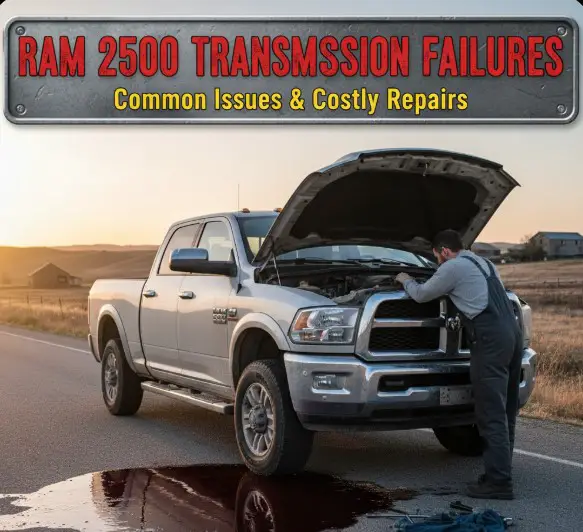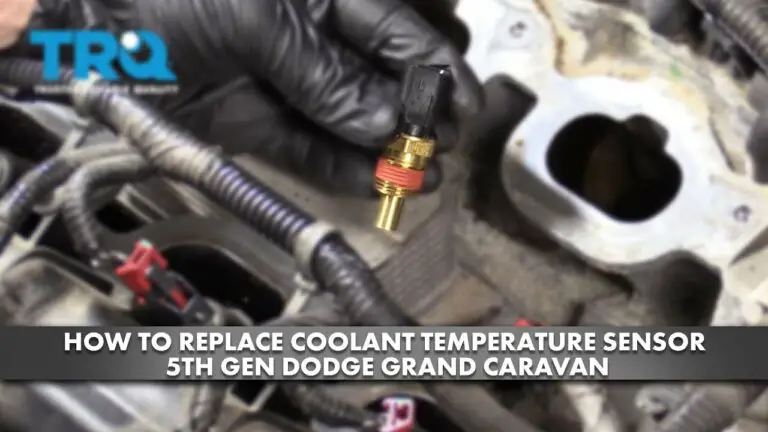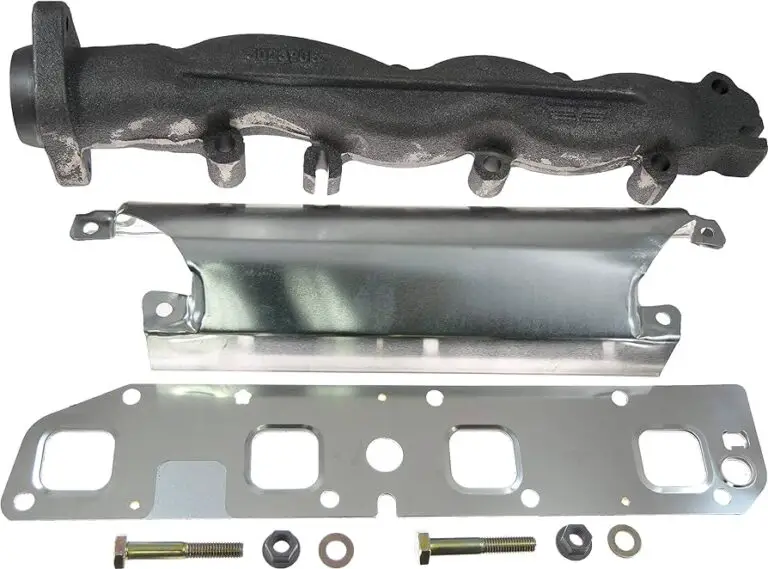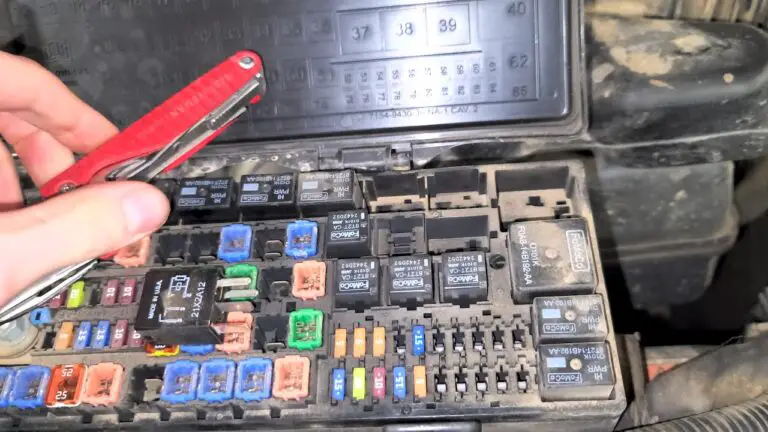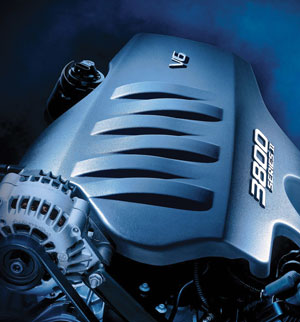Detroit 60 Series Bolt Torque Specs
The Detroit 60 Series engine is a 12.7 liter inline 6-cylinder diesel engine that was released in 1987 and is still used today. Torque specs for the bolts vary depending on the application, but generally range from 30 to 80 ft/lbs. The cylinder head bolts should be torqued to 50 ft/lbs (67 Nm) dry, then re-torqued at 180 degrees rotation to 35 ft/lbs (47 Nm).
The main bearing cap bolts need torquing in three stages: firstly torque all the main bearing caps to 40ft/lb; secondly incrementally increase the torque by 20% steps up to 75 ft./lb.; finally, complete a final pass of 90° incremental rotations with 85ft.
/lb of torque applied. Connecting rod bolting requires 55ft./lb of torque using new hardware; if replacing existing hardware, refer back to original manufacturer specifications or use as suggested by aftermarket parts suppliers.
Finally, flywheel bolt tightening requires 75 – 80ft.
One of the most important specifications to consider when working with Detroit 60 Series engines is the torque specs. Properly torqued bolts are essential for optimal engine performance and durability, which is why it’s so important to know what level of torque you should be using for each bolt. Knowing the correct torque specs for your Detroit 60 Series engine will help ensure maximum power output and longevity from your engine.
Shortened 60 Series Cylinder head install
Q1
What is the importance of grass in our environment?
Grass plays an important role in maintaining a healthy environment by providing food and shelter for wildlife, regulating water flow, and reducing soil erosion. Grass provides a habitat to numerous species of birds, mammals, reptiles, amphibians, fish and invertebrates.
It also helps prevent flooding by absorbing excess rainwater and snowmelt. In addition to these benefits it can act as a natural filter for pollutants found in air or water that passes through the grassland ecosystem. The roots of grass help keep soils from eroding away due to heavy rains or wind gusts while its canopy shields soils from direct sunlight helping reduce evaporation rates thus allowing more moisture to remain in the soil for plants which require it.
By conserving groundwater supplies and controlling storm runoff into streams or rivers, grasslands provide vital ecological services essential for sustaining life on earth.
What are the Torque Specifications for the Detroit 60 Series Engine Bolts
The Detroit 60 Series engine is a powerful, reliable diesel engine that has been used in many commercial and heavy-duty vehicles for decades. As with any other engine, it requires careful maintenance to ensure its longevity. One of the most important aspects of this maintenance is proper torqueing of all bolts, nuts and fasteners associated with the engine.
To get the best performance from your Detroit 60 Series Engine, it’s essential to know the correct torque specifications for each bolt on the engine block.
The main components which need to be torqued are: cylinder head bolts (50 – 55 lb/ft), rocker arm nut (20 – 25 lb/ft), oil pan bolts (30-35 lb/ft), water jacket plug (12 – 15 lb/ft) and valve cover screws (15 – 20 lb/ft). When tightening these components you should first snug them down by hand before using a torque wrench to ensure they have reached their specified tension levels without over torquing them.
Additionally, you should always use new fasteners when replacing parts as old fasteners can become stretched or damaged over time leading to uneven clamp loads on gaskets or seals resulting in leakage or blowouts. Following these simple steps will help keep your Detroit 60 Series Engine running smoothly for years to come!
The Recommended Torque Specification for Detroit 60 Series Engine Bolts is 80-85 Ft/Lbs of Torque
When it comes to the proper torque specification for bolts used with Detroit 60 Series engines, it is recommended that 80-85 ft/lbs of torque be applied. This level of torque ensures that the bolt has been properly tightened and will not cause any problems due to inadequate clamping force or premature loosening. It also prevents any potential damage from over tightening, which can lead to excessive stress on components and parts or even breakage if too high a value is specified.
Therefore, when assembling Detroit 60 Series engine components using bolts, make sure to adhere closely to these recommended specifications in order to ensure optimal performance and longevity.
Q2
How to Create a Professional Website
Creating an impressive, professional website can be a daunting task if you don’t have the right knowledge or tools. However, with the availability of user-friendly resources such as web hosting services and design templates, anyone can create a professional website in no time.
The first step is to come up with an idea for your website; it could be something related to your business, hobby or passion. Once you have decided on the purpose of your website, look into domain registration and web hosting services that offer reliable support and are easy to use. After deciding on the platform for building your site (WordPress is usually recommended), it’s time to start designing!
If you’re not familiar with HTML/CSS coding then there are plenty of drag & drop template builders available which will make creating pages much easier. Make sure you pick a visually appealing design that reflects the theme and content of your website; don’t forget about adding relevant images too! Last but not least, when all the pages are completed – take some time to go through everything again before launching live; check for typos and broken links so visitors get an excellent experience from visiting your site.
With these steps followed correctly – you should now have yourself a professional looking website without any hassle!
How Often Should I Check the Bolt Torque on My Detroit 60 Series Engine
Regularly checking the bolt torque on your Detroit 60 Series engine is an important part of keeping it running in top condition. It’s recommended to check the bolt torque every 3,000 miles or once a month. This will ensure that all bolts are tight, which can prevent damage due to vibration and movement.
Before starting this procedure, make sure you know what type and size of bolts are used for each component; different types have different specifications on their tightening requirements. To read the correct value for your engine’s bolts, refer to its owner’s manual or service manual before beginning any work as these values may change over time as parts age or wear down through usage. Once you’ve determined the proper amount of torque required for each bolt, use a calibrated wrench with an appropriate extension if needed and tighten them according to manufacturer specs in order: from center outward (for large items like cylinder heads) and from outside inward (for small items like rocker arms).
After completing the task be sure to double check all connections for accuracy before moving onto other tasks such as adjusting valve lash settings or replacing spark plugs.
It is Recommended to Check And Adjust Your Bolt Torques Every 5,000 Miles Or When Performing Major Maintenance Services Such As a Tune-Up Or Oil Change
Regularly checking and adjusting your bolt torques is an important part of maintaining the safety, dependability and performance of your vehicle. Many car owners are unaware that it is recommended to check on their bolt torques at least every 5,000 miles or when major maintenance services such as a tune-up or oil change are done. This simple step can help prevent costly repairs down the road, by ensuring that nuts and bolts remain tight without being over tightened.
Over tightening can cause damage to threads and engine components while under tightening may lead to loss of power or increased vibration due to parts coming loose during operation. For these reasons it’s best practice to always ensure that all bolted connections are properly checked for torque before any long distance driving trips or after any major service work is completed.
Q3
How to Improve Your Writing Skills
If you want to become a better writer, there are some simple steps that you can take. First and foremost, read as much as possible – not only books but also magazines, newspapers and online articles.
Reading will help improve your vocabulary and give you an understanding of different writing styles. Secondly, practice makes perfect! Take the time to write regularly; even if it’s something small like jotting down notes or thoughts in a journal each day.
This will help build up your confidence when it comes to expressing yourself with words on paper or screen. Lastly, get feedback from someone else who is knowledgeable about writing such as an editor or experienced writer – they can give you advice on how best to structure sentences effectively and how best make sure your message is clear and concise. With patience and dedication these tips should definitely help you improve your writing skills in no time!
Are There Any Special Tools Needed to Tighten the Bolts on a Detroit 60 Series Engine
When it comes to tightening the bolts on a Detroit 60 Series engine, there are certain tools that need to be used in order to do so correctly. The most important tool is a torque wrench, as this will help ensure that each bolt has been tightened exactly and uniformly. Additionally, you should use an appropriate socket for your bolts; if your bolts require a metric socket, make sure you have one that fits properly and isn’t too large or small.
Finally, it would also be beneficial to have an adjustable wrench on hand in case any of the nuts or bolts become stuck and require some extra force. With these special tools at your disposal, you can rest assured knowing that all of your Detroit 60 Series engine’s bolts have been safely tightened so they won’t come loose during operation.
No, You Can Use Basic Hand Tools Like a Ratchet And Socket Set to Tighten Your Engine Bolts Properly According to the Specified Torque Specs Provided by the Manufacturer in Their Service Manual
No matter what kind of vehicle you drive, it’s important to make sure that all the bolts and nuts on your engine are tightened properly. Without proper tightening, your engine will not perform at its best and can even be damaged over time due to components becoming loose. Fortunately, you don’t need expensive power tools or specialized equipment in order to ensure that your bolts are tightened correctly: a basic hand ratchet and socket set is enough for most jobs.
Simply look up the correct torque specs from the manufacturer’s service manual—this will tell you how tight each bolt should be—and use the ratchet and socket set to tighten them accordingly. It may take some extra time compared with using powered tools, but following this method ensures that every nut and bolt is securely fastened without any risk of damage or under-tightening.
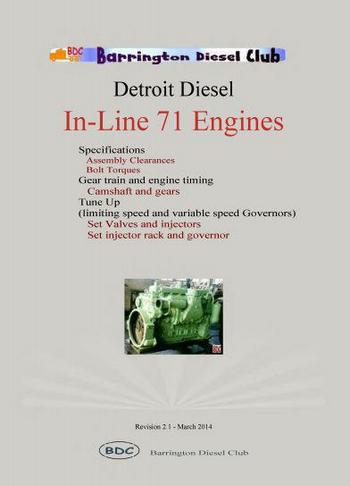
Credit: barringtondieselclub.co.za
Detroit 60 Series Camshaft Cap Bolt Torque
The Detroit 60 Series Camshaft Cap Bolt Torque should be set at 22 lb-ft. This is the manufacturer’s recommended torque setting, and it should not be exceeded in order to avoid any potential damage or wear on the camshaft cap bolts. It is important to use a quality torque wrench when tightening these bolts to ensure that they are tightened correctly and evenly.
Detroit Series 60 Injector Torque Specs
The Detroit Series 60 Injector Torque Specs require that the injectors must be tightened to a torque of 30-35 lb/ft. Additionally, when tightening the bolts, it is important to use a sequence pattern and ensure that all of the bolts are tightened evenly. Failing to do so may result in uneven pressure on the injector causing it to malfunction or leak fuel.
Detroit 60 Series Flywheel Bolt Torque Specs
The Detroit 60 Series Flywheel Bolt Torque Specs are as follows: the bolts should be torqued to 220 ft-lbs. Make sure to use a torque wrench when tightening these bolts, and make sure they are tightened in a crisscross pattern for even distribution of pressure across the flywheel. Additionally, you should always use new or remanufactured flywheel bolts with any installation; never reuse old hardware.
Conclusion
In conclusion, the Detroit 60 series engines are reliable and powerful. Knowing proper bolt torque specs is essential for proper installation and maintenance of these engines. By following the guidelines outlined in this article, you can ensure that your engine will run efficiently for many years to come.


